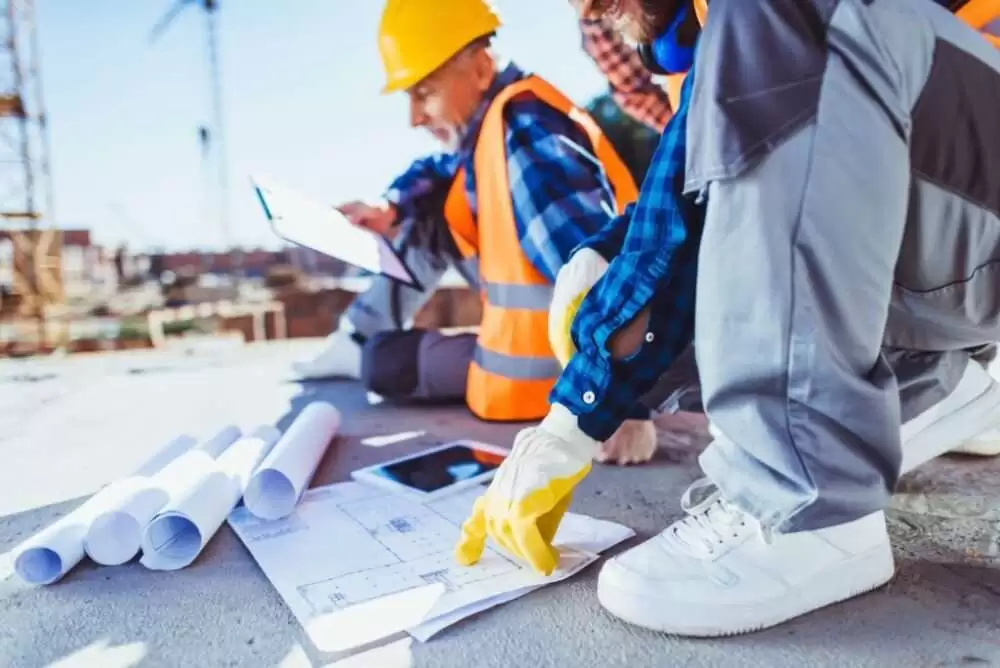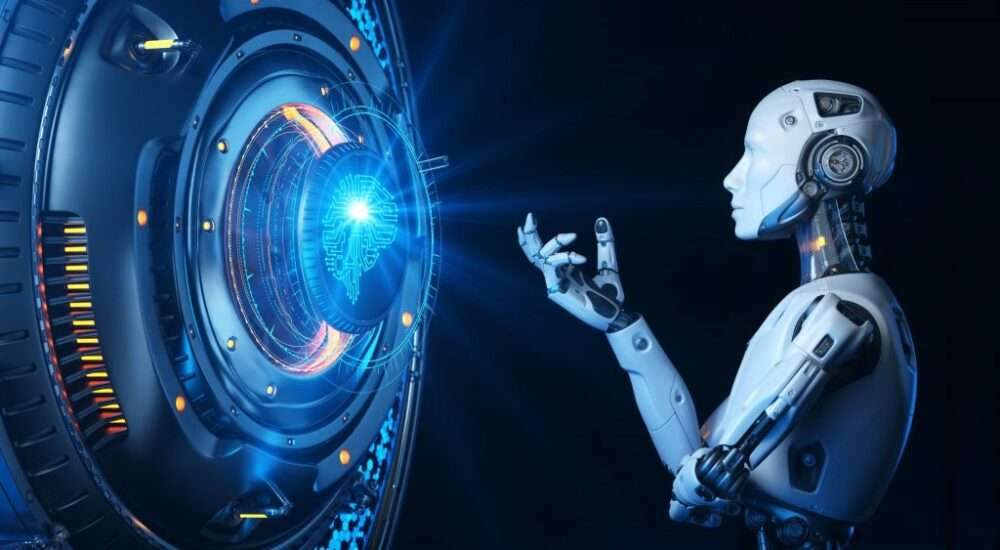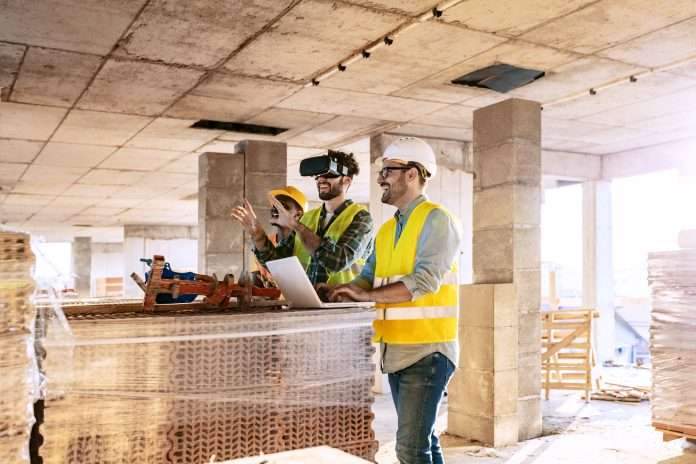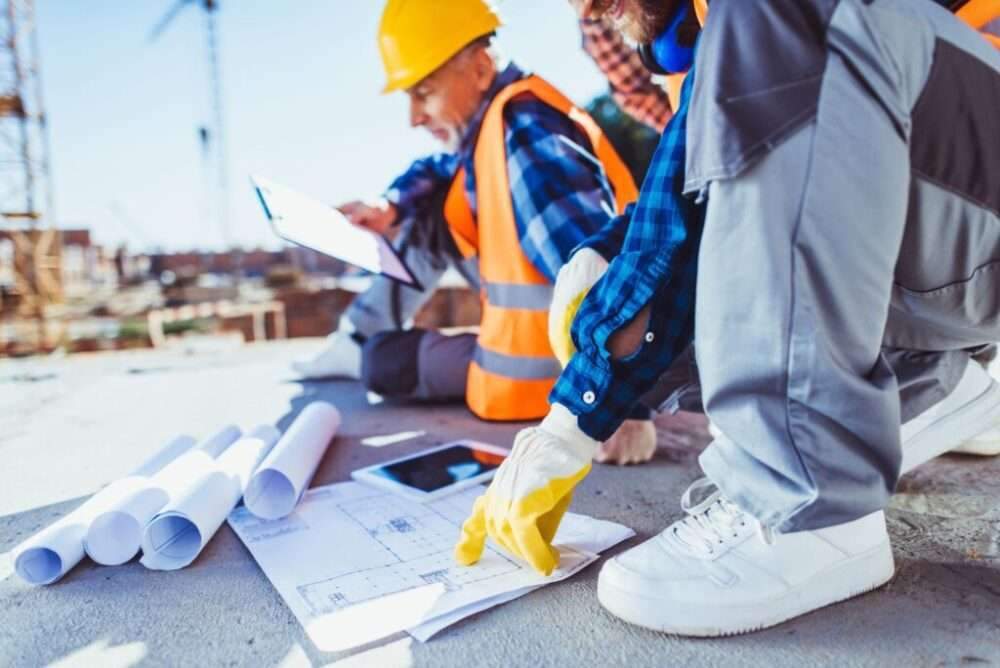Revolutionize construction scheduling by harnessing the capabilities of artificial intelligence,
The construction industry has used manual scheduling techniques for decades,
but artificial intelligence (AI) is now revolutionizing construction scheduling.
AI-based scheduling offers the potential to significantly reduce construction project delays
and costs while improving the efficiency and accuracy of the scheduling process.

AI driven scheduling
Many industry leaders now recognize the power of artificial intelligence (AI) to revolutionize construction schedules.
AI-driven scheduling delivers unparalleled accuracy and reliability to construction managers and companies.
Managers can improve construction planning and management processes with AI by automatically creating sequences of complex activities, resources, and labor requirements.
AI-powered scheduling systems use algorithms to analyze data,
such as historical project data, to create accurate and reliable construction schedules.
Using mathematical models and statistical techniques, these systems can identify rules and patterns within the data,
which can be used to create highly optimized tables.
This greatly increases the accuracy and reliability of the scheduling process.
AI-powered scheduling can also take into account the impact of dynamic events,
such as weather changes, construction delays, and safety issues.
By accurately predicting and responding to these events,
AI-driven scheduling can help construction companies manage risk and increase efficiency.
Finally, AI-driven scheduling can give companies more insight into the project life cycle.
By analyzing data from different project phases, AI can make recommendations on improving quality,
increasing productivity, and reducing delays.
By leveraging the power of AI-driven scheduling, construction companies can make better decisions,
save time and money, and improve safety on their projects.
With its ability to automate complex processes and accurately predict events,
AI-based scheduling is revolutionizing how construction companies manage their projects.

Implementation of AI-based scheduling
The incorporation of artificial intelligence (AI) into the construction industry has revolutionized how construction scheduling tasks are handled, improving efficiency and accuracy.
And with AI-based scheduling, project managers can create a schedule based on all factors,
including weather, delays, resource availability, and more.
This allows for greater scheduling flexibility and helps ensure construction projects are completed on time and within budget.
To take advantage of AI-based scheduling, project managers must first define the different tasks,
materials, and resources needed for the project, and then define the goals and constraints associated with each task.
The AI-based system then uses this information to create an ideal project schedule, taking into account all the different parameters.
This allows project managers to adjust the schedule without compromising the project schedule.
Implementing AI-based scheduling also gives project managers more insight into project progress over time.
AI-based scheduling systems use predictive analytics to anticipate changes in the project schedule,
This helps the managers to adjust their strategies and plans accordingly.
This helps reduce the risk of unexpected delays, as the project manager can make any necessary adjustments well in advance of the project.
Finally, AI-based scheduling can help project managers reduce the risk of human error.
AI-based scheduling systems can analyze real-time data and identify potential flaws or discrepancies in the project schedule before it’s too late.
This helps ensure that the project is implemented as efficiently and accurately as possible, leading to a successful outcome.
The incorporation of AI-based scheduling into the construction industry has been a game-changer.
By leveraging AI to create a more accurate and efficient project schedule,
project managers can streamline the entire scheduling process,
This leads to improved accuracy, reduced risk and increased profits.
AI-based scheduling is an invaluable tool for project managers looking to make their construction projects a success.

Data collection and preparation
To optimize construction schedules with the help of AI, a large pool of data must be organized into one central hub.
This data can be collected from various sources, such as blueprints, designs, and project specifications.
In addition, data must be collected on labor costs and the availability of necessary equipment and materials.
This data must also be collected, documented and organized into one comprehensive database.
Once the data is collected, it must be prepared for AI processing.
This will include cleaning up the datasets to ensure that the data is in a standardized and consistent format.
This is done by eliminating anomalies or inconsistencies in the data sets.
For example, one may have to ensure that labor cost is always expressed in one currency
or that all measures are expressed in the same period.
After the datasets are cleaned and standardized, they will be categorized
and organized into categories (or categories) that the AI can interpret.
AI can accurately analyze and predict construction scheduling by collecting the right data and preparing it correctly.
Data collection and preparation is key to harnessing the power of AI for construction scheduling.
The more data sets collected and organized, the more accurate and reliable the predictions will be.
By implementing this data-driven approach, organizations can benefit from reliable predictive analytics
and achieve greater efficiencies, cost savings, and more accurate estimates.

Choosing the right AI tool
When implementing AI build scheduling, the right AI tool is of paramount importance.
Choosing the right tool can mean the difference between success and failure.
There are many AI tools on the market, and making the right decision can lead to action.
This is why it is important to consider a few key factors when choosing the right construction scheduling AI tool.
First, one of the most important factors is determining the specific needs of your construction project.
What type of task scheduling is required? What kind of features do you need in an AI tool?
Do you need a basic scheduler or a more complex one?
By answering these questions, you can narrow down potential AI tools to best meet your needs.
Second, it is important to consider the cost of AI tools.
While some AI tools are free or low cost, others can be quite pricey.
It may also help if you research customer service and support options for the AI tools you’re considering.
Knowing if there is a customer service team on call to help you with any issues that may arise can be invaluable.
Third, you need to determine how compatible the AI tool is with other software you might use.
For example, if you have an existing scheduler, you need to make sure that the AI tool you choose is compatible.
This can help ensure a smooth and relatively hassle-free transition to using the new tool.
Finally, you should pay attention to customer reviews of any AI tool you are considering.
Reading reviews of existing users can provide insight into the features and customer support that the tool provides.
It can also give you a better idea of whether an AI tool is suitable for your construction scheduling project.
Choosing the right AI tool for your construction scheduling project can take time and effort.
By considering the above factors when choosing an AI tool, you can be sure to select the one that best suits your needs.

AI system training
Training an AI system to schedule construction requires extensive data entry and collection.
Data inputs should be collected from various sources, such as project plans,
labor costs, equipment availability, and safety standards.
In addition, historical data from past projects should be collected and analyzed to identify trends
and identify challenges that can be mitigated in the future.
Furthermore, algorithms must be created and integrated into the AI system to accurately model project progress and anticipate potential problems before they arise.
Once the data has been collected and analyzed, the AI system must be trained to recognize patterns and draw correlations between data points.
This requires creating training datasets that accurately represent the project and its potential challenges.
The AI system must then be tested in a simulated environment to ensure the accuracy of its predictions and the integrity of the data.
Furthermore, the AI system must be tested in a real environment with actual build schedules to ensure that it works as expected.
By training the AI system with accurate and comprehensive data,
construction teams can benefit from improved scheduling accuracy and reliability.
In addition, the AI system can automatically identify potential problems before they become major problems,
allowing for greater cost savings and improved project results.
Ultimately, a well-trained AI system can help construction teams improve workflow and make informed decisions that can revolutionize construction scheduling.
In conclusion, AI in construction scheduling offers a promising solution to the age-old industry challenge of ensuring projects are completed on time, on budget, and to a high quality standard.
And with technologies like artificial intelligence and machine learning,
construction companies and project managers can more accurately predict and manage task times, improving project outcomes.
In addition, AI technologies can help reduce the burden of manual data entry and analysis,
allowing project managers to focus on the most impactful tasks.
Moreover, AI-based scheduling can increase visibility and transparency throughout the project,
What helps stakeholders make informed decisions.
Overall, AI-driven construction scheduling can provide a competitive advantage to organizations,
resulting in improved customer satisfaction and lower costs.

How to use scheduling in artificial intelligence
- Scheduling is a way to organize tasks in order of importance and priority.
- In AI, scheduling algorithms are used to create a set of plans detailing how AI-driven tasks will be completed.
- Scheduling algorithms can be used to improve AI-driven tasks, such as bots, natural language processing, and image recognition.
- Scheduling algorithms also help reduce wasted resources, as tasks are scheduled in an efficient manner to ensure the best possible outcome.
- AI scheduling algorithms can be used to determine when tasks need to be completed and by whom, in order to maximize efficiency and performance.
- Scheduling algorithms can also be used to organize tasks according to their priority and to plan ahead for possible unforeseen circumstances.
How to use artificial intelligence in construction management
- AI can be used to automate repetitive tasks such as task scheduling, resource allocation, and data collection.
- Artificial intelligence can be used to improve construction processes by leveraging machine learning algorithms to identify the most efficient solutions to problems.
- AI can be used to analyze data from BIM models to detect errors and improve the accuracy of predictions.
- Artificial intelligence can be used to monitor construction sites and predict potential safety hazards.
- Artificial intelligence can be used to detect design errors or structural problems that may occur during the implementation of a construction project.
- AI can be used to manage supplier relationships by automating the process of ordering and tracking supplies.
For more architectural news
Announcing a group of self-assembling robots to form bridges and buildings







